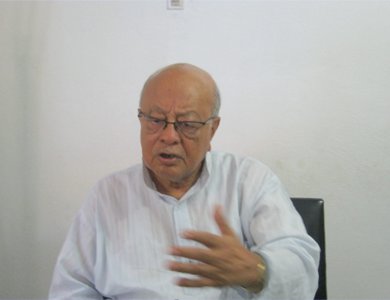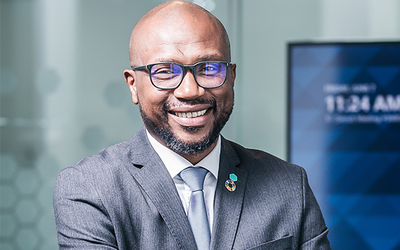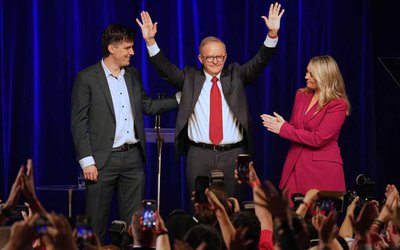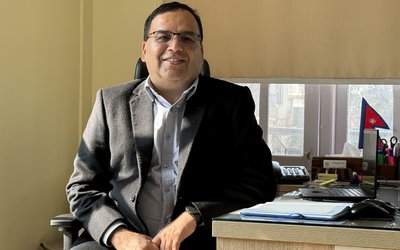
Himalaya Sumsher Rana, 86, is a well-known name in the Nepali civil society. The first governor of Nepal's Central Bank, Rana made real contributions to improve Nepal's financial sector. Rana, who is now leading General Election Observation Committee (GEOC), a reputed national consortium of civil society organizations, spoke to New Spotlight on various issues. Excerpts:
As the Election Code of Conduct has come into effect, what role does the Election Observation Committee play now?
Free and fair elections are a must. In many countries where democratic practices are well established, there is no need for external observers. Election Commission, government and people themselves know how to conduct free and fair elections. However, in countries like Nepal where democracy is still being established, internal as well as international observers are required in addition to government personnel, security personnel. The observers play an important role in saying that the code of conduct issued by the Election Commission be observed. Prior to the elections, political parties do not use money and muscle for elections. During the election days, our role will be to ensure voters exercise their rights without fear and intimidation. In Nepal also, for the last 10 years or so, international and national observers have been observing and reporting the election of national parliament and of the constituent assembly as well.
As you have been leading GEOC for the last 10 years, how do you see the coming elections, given the complicating political deadlock?
It is going to be very different. The last elections were for the Constituent Assembly and at that time a new political scenario was in effect as the elections were held after a Maoist revolution. Young Communist League was still there. Maoists had the armed people. They had resorted to violence to justify their ideology. They had arms, so people were afraid. During the first elections of CA, the last two or three days of election were dominated by fear psychosis. There was a feeling that voting against Maoists will invite the bloody violence. However, this time the YCL has been dismantled and the people who voted for Maoists for the sake of political change can assess the words given by Maoists and what was the situation. The situation and environment for free and fair elections is better now.
The Election Code of Conduct has come to effect just now. What is the role the election observers will need to play?
We start observing the elections from today. Before the elections, we will observe whether the code of conduct has been observed by political parties or not.
How many districts is GEOC going to cover this year?
We were observing 35 districts in the past. This year, if we are able to get the required funding, we plan to observe 55 districts.
Chief Election Commissioner Neel Kanth Uprety has said that he wants to put certain restrictions on national and international observers. How do you look at this?
This is a fair position he has taken because we did not know how many groups observed the elections last time. Last time, 147 groups and organizations got the permission to observe the elections. Out of them, only 27 groups submitted their reports. When the EC asked for the reports, the groups went out of contact. This time when the EC held the meeting with election observers, it also issued the code of conduct for the national and international observers. It means if some groups want to undertake observation, they cannot apply for observation only one district. According to the new code of conduct, one has to undertake at least a few districts in three regions of the country. One has to go to remote parts of the country. Only those who have organizational capabilities can now observe the elections. EC is now inviting applications for the observers in the near future. EC will issue the permission only after vigorous scrutiny of the applications.
There were charges in the past that there was bias in the observers’ report. How do you make the observers impartial?
Even the EC agreed that out of 147 observers permitted in the elections, many of them got access to polling booths as observers and helped voters to cast the vote in favor of a particular party. Even some observers took part in the election campaign. Some observers even transported the voters to the polling booths through a vehicle given to observe the elections. In all the elections in the past, including two parliamentary elections and one CA elections, I did not stay in Kathmandu. I went to Butwal, Nawalparasi, Taulihawa and Chitwan. During my observation, I had not seen any rampant misuse by observers. Some observers indirectly were helping the political parties.
How possible do you see are elections?
Up to now, there is an overwhelming consensus in favor of elections on November 19. I am one of those who are in all my heart and mind advocating for the election in November. We must have elected government in the governance of the country.Since we started the journey for democracy in 1951, every now and then our efforts go astray. I cannot imagine a government governing the country without mandate from the people. But, at the same time, for the last couple of days, a sort of nagging doubt has entered into my mind because of the fact that now Mohan Vaidya groups and other opposition parties should join the elections. There is the need to bring Vaidya group and opposition in the elections. I think there is the need to start negotiations with those who are opposing the elections. We need to listen to them and address their genuine demands. My query is that given the long process of negotiations and discussions, will we able to hold the elections in November? Some leaders are still advocating for the election and urging voters that it should not be postponed but if the cycle of negotiation is extended, then it is uncertain.
Given the present political scenario, are you taking certain initiatives for negotiations?
We have issued a statement publicly calling all the parties to take part in the elections. Our view is that this CA election is not like elections of national assembly where the parties are divided in ruling and opposition benches. This is the election for the constitution. So, there is the need of participation from all the people. If all political parties take part in the elections, then we will have a constitution acceptable for all. The constitution will also last for long. Although the Constitution of 1990 was a good document, it was drafted by the three political forces. After failing to draft the constitution through 601 members, now parties seems to be considering to set up a committee to draft the constitution.
How do you see the challenges before the coming elections to make it impartial?
There are lots of challenges before us, but we don't have other alternatives than to hold the elections. The political process is still unclear. After the elections of the new constituent assembly, people will vote to give the nation a new direction. In the last elections, radical communists had more seats but they didn't have the majority either. This time the composition will be different and political parties will come out with clear agenda.
Uncertainty and lack of political clarity and resultant economic stagnation cannot go on any more. The country needs a new political direction and new constitution should be drafted accordingly.
- MELAMCHI WATER SUPPLY: No Interruption During Monsoon
- Jun 25, 2025
- KOREAN RETURNEES: Successful Integration
- Jun 25, 2025
- UPPER TRISHULI-1: Engaging With Local
- Jun 25, 2025
- IME GROUP: Twenty Five Years Of Journey
- Jun 24, 2025
- NEPAL’S AIR POLLUTION: A Growing Health Concern
- Jun 24, 2025















